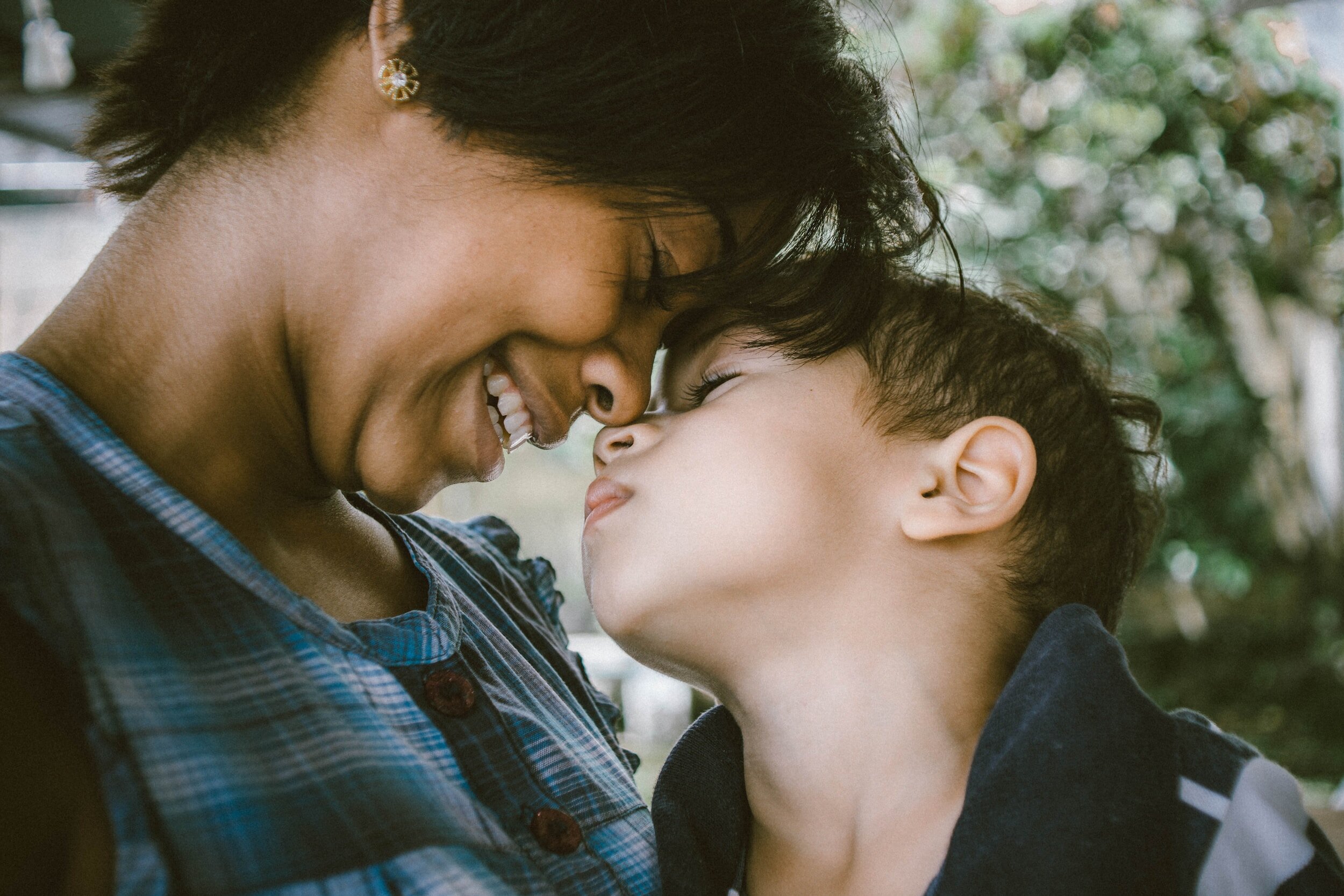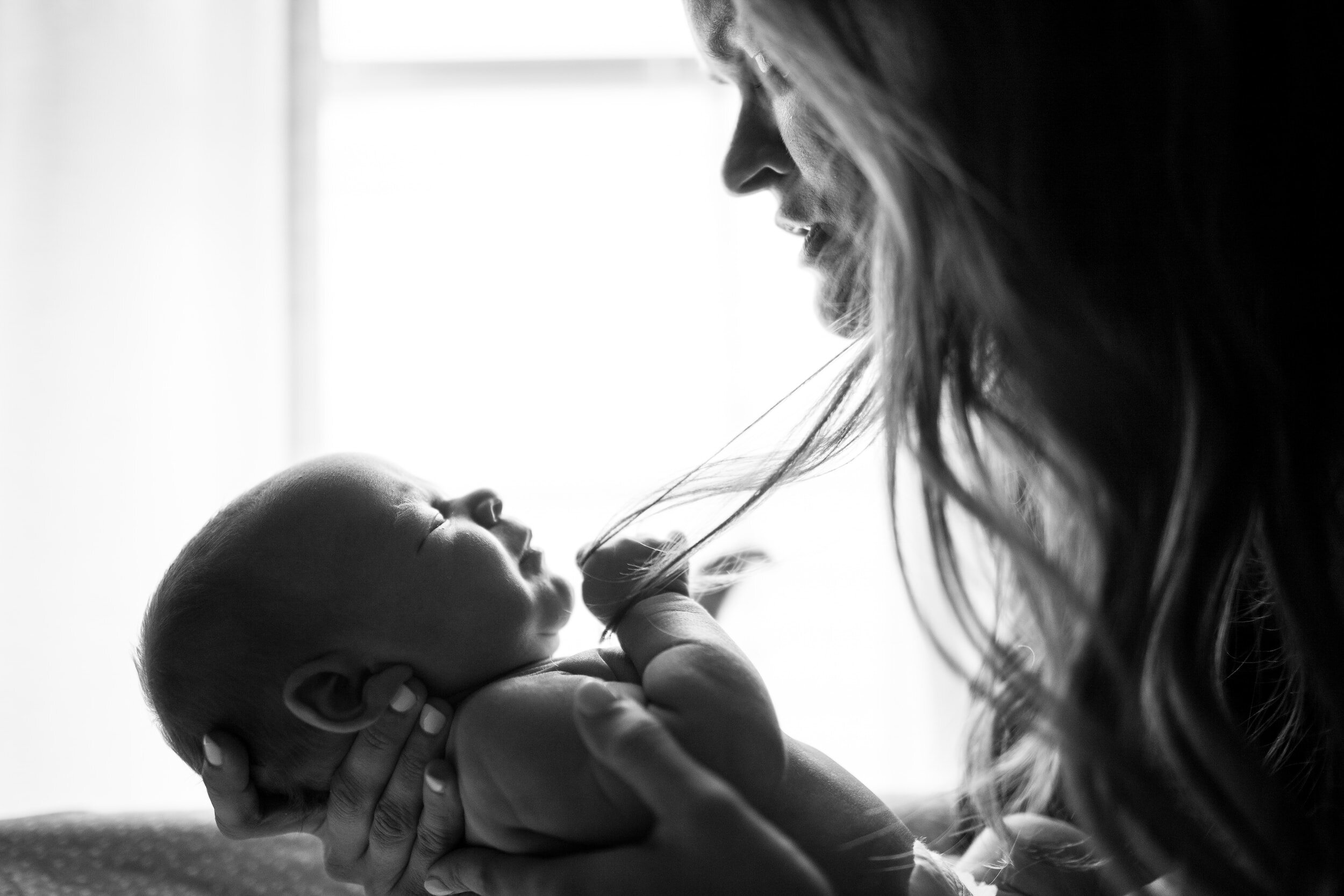Understanding the Impact of Anxious Attachment in Motherhood
Understanding the Impact of Anxious Attachment in Motherhood
From the moment you first saw that positive pregnancy test, the worries may have already started flooding your mind. Will I be a good mom? What if I can't soothe the baby when they cry? How will I protect my child from every imaginable danger in this big, bad world?
You had eagerly awaited motherhood yet still found yourself unexpectedly plunged into anxiety. If this resonates at all, know that you're not alone. Let's explore how having an anxious attachment style can unexpectedly impact motherhood and practical ways to manage the challenges with self-compassion.
What is Anxious Attachment and Why Does it Develop?
Anxious attachment is an emotional regulation style rooted in childhood. Those with an anxious attachment tend to be highly sensitive and emotionally reactive. They deeply desire close relationships but also feel insecure and fearful of rejection.
Anxious attachment typically stems from inconsistent nurturing in early childhood. If your primary caregivers were sometimes there for you, but other times they were absent or inconsistent, it can leave you with a deep-seated fear of being abandoned. Unfortunately, this fear can stick with you into adulthood, even if your current circumstances don't justify it. So, if you find yourself feeling anxious in motherhood and relationships, it's not your fault. It's just that early nurturing might have left you with some lingering uncertainties.
How and Why Anxious Attachment Issues Crop Up in Motherhood
If you're a mom with an underlying anxious attachment style, it can catch you off guard by intensifying in new ways:
Intense Worries About Meeting Your Child's Needs: You may constantly second-guess your ability to properly nurture, soothe, and support your child's development. This often stems from a deeply rooted fear of failing those who are reliant on you in the way you may have felt failed as a child. If left unaddressed, this can contribute to missing developmental cues from your child and struggling to attune to their needs.
Difficulty Tolerating Cries: Your baby's cries might fill you with self-blame and painful distress vs. merely signaling your little one's unmet needs. This reflects core fears of rejection after a lifetime of feeling unsafe expressing your own needs and emotions. Over time, always being on high alert for cries can deplete your reserves, leaving minimal patience for responding sensitively.
Hypervigilance About Safety: You may exhaust yourself trying to prevent any imaginable danger that stems from an inability to tolerate feelings of vulnerability. Despite best efforts, no one can ever make life completely risk-free. The futile attempt to do so can become all-consuming, limiting your child's opportunities to explore, take risks, and build resilience.
Losing Yourself and Feeling Overwhelmed: Balancing motherhood and personal identity can uncover unresolved issues of self-worth stemming from emotional neglect in childhood. In order to avoid burnout and consistently and compassionately care for your little one, it's crucial to refuel by addressing your own needs.
Fear of Judgment: Every perceived judging look or comment from friends or family about your child's development can feel like criticism directed at your inherent worthiness and abilities as a mother. Pre-existing worries amplify shame, leaving you feeling under constant scrutiny. Over time, strain on these relationships can lead to isolation and reluctance to seek support.
Difficulty Trusting Childcare Help: Being there for your child is important, but you can't do all of it alone. Allowing others to help can give your child valuable experiences and help them connect with others, build confidence, and grow.
Of course, no mother escapes occasional bouts of parental anxiety. But those with anxious attachment often endure this intensity of worry far more frequently, which can, in turn, impact kids. Research shows anxious parenting correlates to anxious children. But when mothers feel secure within themselves, children intuitively build their own sense of emotional safety and trust.
The good news is that awareness of your attachment tendencies, including thoughts, emotions, and behaviors, is the first step. From here, you can learn new strategies to quiet the anxious mind - not just to get through those early years of parenthood but to show up fully present for your child's whole journey.
Strategies for Coping with Anxious Attachment in Motherhood
As an anxiously attached mother myself, I've learned coping strategies that help minimize angst and show up more fully present:
Seek understanding and compassion. Recognize these common struggles as wired-in sensitivity vs. personal failure or weakness.
Enlist support systems. New mom groups, nannies, friends, family, and therapy can all help reality-check worries.
Prioritize self-care. Carve out small pockets of space for sleep, nutritious meals, movement, and fun amidst mom chaos.
Cultivate emotional regulation skills. Practice mindfulness, deep breathing, journaling, etc., to manage difficult emotions when triggered.
Set healthy boundaries with your child. As a mother with an anxious attachment, it's especially difficult to balance your and your child's needs. Put aside regular alone time to recharge, and remember that it's okay for your child to develop independence and self-soothing skills, too.
Let go of judging yourself and others. Compassion for the universal challenges of motherhood is freeing.
Stay grounded in your values and hopes as a parent. Allow your values and priorities to guide you; let your focus on what matters steer you from getting lost in the anxiety maze.
Every Day is a New Day
The transition to motherhood stirs up intense emotions for everyone. But for those with an anxious attachment style, it can be especially overwhelming and filled with self-doubt. That's why getting support tailored to your unique needs matters so much for you and your little one.
Even small steps toward understanding yourself and your attachment style can start ripples of positive change for your family. And remember, Mom, you are not just "anxious;" you are a sensitive, caring soul walking your own path. Stay faithful that all the effort you pour into raising babies rooted first and foremost in unconditional love will sustain them well throughout life.
If aspects of this anxious motherhood journey resonate and you want specialized care in addressing anxious attachment patterns, I encourage you to schedule your free 15-minute consultation today. (Colorado and Florida residents only).
You can also get started healing your anxious attachment today by downloading my free guide: Anxious to Secure in Motherhood and Marriage here, or learn to regulate your emotions skillfully by downloading my free Emotion Regulation Skills Guide here.
About the Author
Hannah Dorsher, MA, LPC, NCC, CAT, EMDR is a therapist in Fort Collins, CO who specializes in helping those struggling with anxiety, self-esteem, toxic/unhealthy relationships, anxious attachment issues, break ups, and trauma. I work with clients in CO and FL. Schedule a free consultation call with me here!






